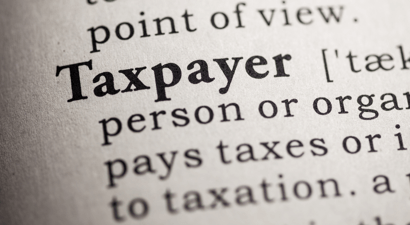Filing Season 2016: Tax Tips for Taxpayers and Insights for Small Business Owners
The 2016 Tax Season opened on 1 July for taxpayers submitting for the March 2015 – February 2016 tax year. Tax Season runs from July to November (provisional taxpayers submitting via eFiling have until January 2017 to submit).
Dates to remember:
- 25 November 2016 – At a SARS branch (provisional and non-provisional)
- 25 November 2016 – eFiling (non-provisional)
- 31 January 2017 – Provisional taxpayers via eFiling
The difference between a provisional and non-provisional taxpayer
Provisional taxpayers are people who earn income other than a salary / remuneration or over and above a salary/ remuneration from sources including inter alia rental income, interest income from investments or business income (income from a trade). This only applies if the taxpayer is under 65 years old and earns taxable income from interest, dividends and rental of less than R30 000 for the tax year if the taxpayer is under 65 years old and the taxable income does not exceed R75 000 for the tax year (current taxable threshold), and if the taxpayer is over 65 years old (but below 75) and can only earn income from interest, dividends and rental which is below R116 150 for the tax year (age 75 and over, the threshold is R129 850).
Non-provisional taxpayers are those who only earn a salary / remuneration.
Using a tax practitioner
Tax practitioners can assist both provisional and non-provisional taxpayers in filing an accurate return. They can also assist businesses in formulating a suitbale and robust tax strategy aligned with your business strategy. It is a regulatory requirement for businesses to appoint an auditor and for close corporations are to appoint an accounting officer. The auditor will perform an audit and sign an audit report with regards to the business’s financial statements, while the accounting officers duties include inter alia (depending on letter of engagement) determining whether the financial statements are in agreement with the accounting records of the corporation, reviewing the appropriateness of the accounting policies applied in the preparation of the annual financial statements, and reporting on these matters.
All tax practitioners utilized need to be registered with SARS and a recognised controlling body (regulatory requirement). Tax practitioner’s registration numbers can be verified through the eFiling website. It remains the responsibility of the taxpayer / business owner to ensure a truthful / accurate submission, as the taxpayer / business owner is accountable for outstanding returns, payments to SARS and any penalties incurred.
Did you know, not all taxpayers need to submit an income tax return?
If your total annual salary earned during 1 March 2015 – 29 February 2016 for the 2015/2016 year of assessment (before tax) is less than R350 000, you don’t need to submit a tax return provide that:
- You only receive an income from one employer;
- You have no other sources of income such as rent, taxable interest or a car allowance;
- You don’t want to claim deductions for medical expenses, contributions to a retirement annuity or travel expenses;
- You received interest from a source in South Africa not exceeding:
- R23 800 if you are below the age of 65 years;
- R34 500 if you aged 65 years or older; and
- Dividends were paid to you and you were a non-resident during the 2016 year of assessment.
If you have two employers or income sources including inter alia partner pension income and rental income, you need to file a return, even if the total income is under R350 000.
Supporting documentation
In preparing to submit your tax return, you need to gather all supporting documentation, which will pertain to relevant income and deduction information. This will include:
- Bank account details
- Certificates you received for local interest income earned
- Completed confirmation of diagnosis of disability form (ITR-DD), if applicable
- Financial statements, if applicable
- IRP5/IT3(a) certificate(s) from your employer or pension fund
- IT3(b) certificates for investment returns
- Logbook and documentation supporting business travel expenses
- Medical aid contribution certificates and receipts
- Retirement annuity fund certificates
You must keep all supporting documentation safely for a period of five years from date of submission in case SARS require them in future.
Where an audit is conducted or a dispute exists, it may be necessary to keep documents for more than five years.
If you’re filing at a SARS branch you must bring your return, all supporting documentation and original proof of your identity (ID, temporary ID, passport or driver’s licence).
Tax for small business owners
Type of business
Sole proprietorship
A sole proprietorship is a business entity owned and run by one individual where there is no legal distinction between the owner and the business and all profits and losses accrue to the owner. The owner doesn’t need to register the business with SARS but does need to include the income from the business in his / her tax return.
Partnership
A partnership is also not a separate legal person or taxpayer. A partnership is an association of between two and twenty people who are contractually bound to one another to operate a joint, profit-generating business. Each partner contributes money, goods or services to a fund, agreeing that any profits made will be shared between the partners as per their contract. Each partner is taxed on his or her share of the partnership profits.
Private company
A private company is a separate legal entity and has to be registered separately as a taxpayer. In certain circumstances, shareholders can be held liable. These possible liabilities can pertain to employees’ tax, VAT, additional tax, penalty or interest for which the company is liable.
Tax registration
Businesses are required to register with their local SARS office to obtain an income tax reference number. You must register within 60 days after you have commenced business by completing an IT77 form.
A Close Corporation or private company must be registered with the Registrar of Companies and Close Corporations to obtain a business reference number; the company will then be registered automatically as a taxpayer.
Depending on inter alia turnover, payroll amounts, import / export, you could also be liable to register for other taxes, duties, levies and contributions such as VAT, PAYE, Customs, Excise, SDL and UIF contributions.
The tax your business will need to pay
Provisional tax
Provisional tax consists of the payment of two installments in respect of income received or accrued during the relevant tax year and an optional third payment after the end of the tax year. The first provisional tax payment must be made within six months after the commencement of the tax year and the second payment not later than the last day of the tax year. The optional third payment is voluntary and may be made within six months after the end of the tax year if your accounts close on a date other than the last day of February.
For a tax year ending on the last day of February, the optional third payment must be made within seven months after the end of the tax year.
Employees’ tax
Employees’ tax (PAYE) is deducted from the earnings of employees and payed over to SARS on a monthly basis. This tax serves as a tax credit that is set off against the final income tax liability of an employee, which is determined on an annual basis. A business that pays salaries, wages and other remuneration to any of its employees above the tax thresholds, must register with SARS for employees’ tax purposes. This is done by completing an EMP 101 form and submitting it to SARS. Once registered, the employer will receive a monthly return (EMP 201) that must be completed and submitted together with the payment of employees’ tax within seven days of the month following the month for which the tax was deducted.
Directors’ remuneration
The remuneration of directors of private companies / Close Corporations is subject to employees’ tax. Remuneration is often only determined late in the tax year / the following year, in which case the directors finance their living expenditure out of their loan accounts until their remuneration is determined. In order to solve the problem of no monthly remuneration being payable from which employees’ tax can be withheld, a formula is used to determine a deemed monthly remuneration upon which the company must deduct employees’ tax.
A director is not entitled to receive an employees’ tax certificate (IRP5) in respect of the amount of employees’ tax paid by the company on the deemed remuneration if the company has not recovered the employees’ tax from the director.





